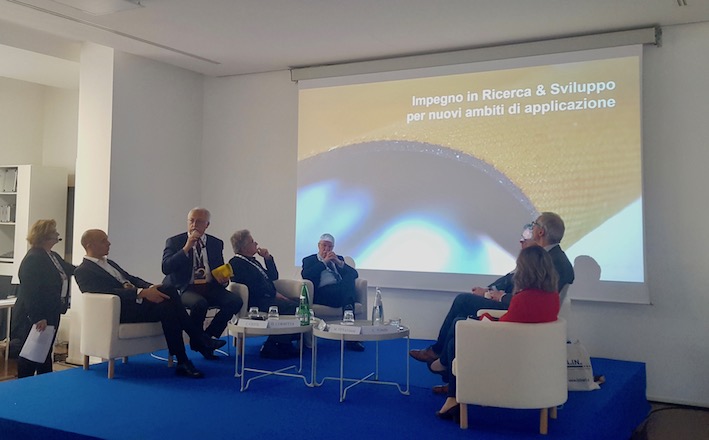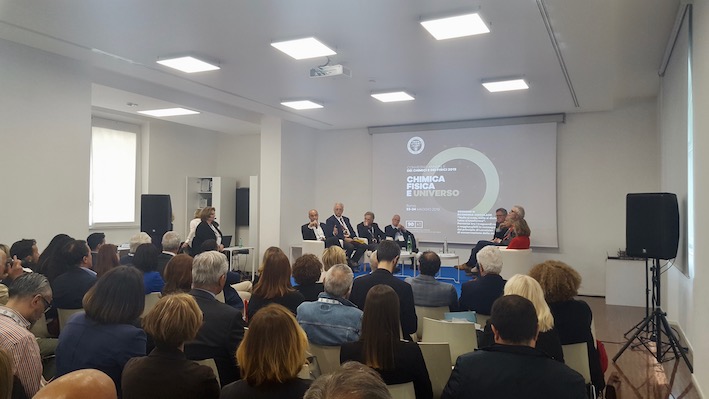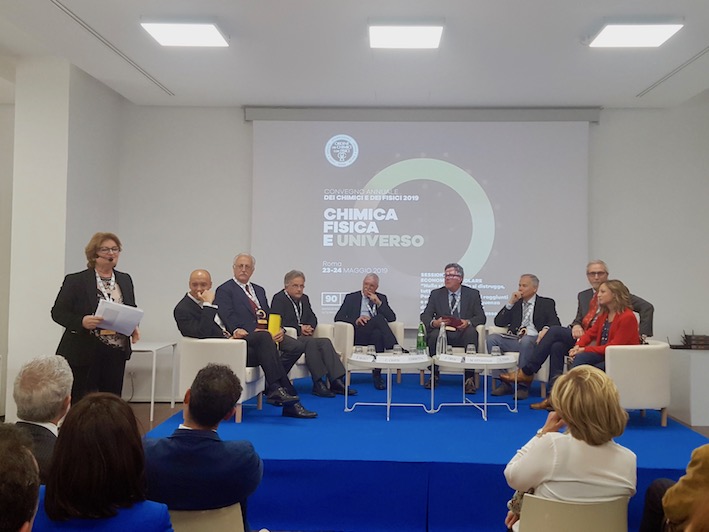Giovanni Corbetta and Daniele Fornai of Ecopneus have been invited to a panel discussion about the circular economy by the interregional College of Chemists and Physicists during the annual meeting of the College.
“Nothing is created, nothing is destroyed, but everything is transformed”. This is the title of the panel discussion about the circular economy attended by the General Manager of Ecopneus, Mr Giovanni Corbetta and its Head of Operations, Mr Daniele Fornai, in Rome on 23rd May.
The principle of conservation of mass postulated by Lavoisier in the XVIII century is the symbol of the current model of the circular economy, where, thanks to recycling, the end-of-life products go back to the industrial and productive cycle in the form of new recycled materials ready to become sustainable products.
Doctor Rosa Draisci of the National Institute of Health took part to the event as the moderator of the panel discussion also by virtue of the long-lasting collaboration and dialogue among the central Authorities, the Institute, and the chains involved in the evaluation of the technical, chemical, and performing characteristics of recycled rubber, bearing particularly in mind the requisites the materials must have according to the REACH regulation.

The Speech of the GM of Ecopneus, Mr Giovanni Corbetta
The following people have also participated in the panel discussion: Sergio Cristofanelli and Delia Di Monaco of the General Management of Waste and Pollution (RIN) of the Ministry of Environment, Stefano Castelli of ENEA (the Italian National Agency for New Technologies, Energy and Sustainable Economic Development), Marco Ottaviani, Coordinator of the Environmental Department of the Association of the Italian Battery Producers (represented in ANIE-CSI), Claudio Tonin of CNR ISMAC (the Institute for the Studying of Macromolecules of the National Research Institute) of the city of Biella, and Carlo Ciotti, President of PVC Forum Italia for the textile sector.
The European action plan for transitioning to a circular economy tends to favour occupation, growth and investments. Moreover, it wants to develop a zero carbon emissions economy that may use resources in an efficient way and be competitive at the same time. The Action Plan has the long-term objective of reducing landfilling and increase recycling and the reusing of materials. With reference to the sustainability of the activities linked to the circular economy, one of the main aspects is the one linked to chemicals in materials and to the most appropriate management measures for the risks there connected, with the aim of making end-of-waste safer.

The Speech of the Head of Operations of Ecopneus, Mr Daniele Fornai
For the first time, a systemic approach has been promoted. This approach covers whole value chains and, thanks to such approach, the Commission has integrated the principles of circularity into plastic production and consumption, in the management of water resources, in the food systems, and in the management of specific waste flows.
Moreover, the Plan has contributed to progressing towards the drafting of the 2030 Agenda for sustainable development, outlining the challenges we will have to face in the future to adapt our economy and continue to generate a competitive advantage. This will open the way towards an economy with zero climatic impact, where the pressure on natural resources and on ecosystems is minimised.


 Collect ELT
Collect ELT